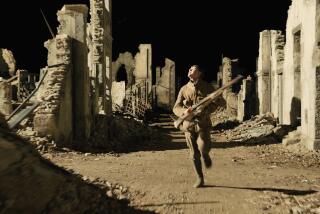Fight for Anti-War Literature
- Share via
Robert Scheer’s totally negative critique of Heinrich Boll’s “The Casualty” (The Book Review, July 19) is rather unfair since it fails to take into account the historical context of the immediate postwar years. The short stories presented in this volume--Boll’s first major writings--were written at a time when the general discussion of fascism, the Holocaust and the war was still very much disoriented, inconclusive and quite often very abstract.
Literature, on the other hand, at least the literature of the younger generation, successfully tried to depict the postwar reality in a very realistic manner and thus probably helped the most to come to terms with the recent past as well as the present situation. The disillusioning description of the war, mainly from the perspective of the millions of victims all over Europe, was a legitimate aspect of this literature. It should not be overlooked that anti-war literature during this time is inherently anti-fascist literature--despite the fact that fascist ideology and policies aren’t necessarily criticized openly or directly!
But beyond this crucial historical point: What’s wrong with anti-war literature? Young readers can’t learn enough about the banality, the senselessness and ugliness of war. Boll’s stories are important especially at a time when political leaders irresponsibly glorify so-called “national heroes,” allocate billions of dollars for lethal weapon systems and support ruthless military insurgency in Central America (and elsewhere).
JURGEN PELZER
Los Angeles
More to Read
Sign up for our Book Club newsletter
Get the latest news, events and more from the Los Angeles Times Book Club, and help us get L.A. reading and talking.
You may occasionally receive promotional content from the Los Angeles Times.









